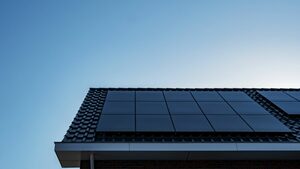Blog Information
- Posted By : Barret Gibson
- Posted On : Jan 03, 2025
- Views : 437
- Category : Technology
- Description : As more power is required from renewables, many homeowners are looking to.. Picking the right Solar panels for homes, is the key to going green efficiently, saving money, and reaping the long-term benefits.
Overview
As more power is required from renewables, many homeowners are looking to.. Picking the right Solar panels for homes, is the key to going green efficiently, saving money, and reaping the long-term benefits appeared first on Home Design Guide. Solar panels for home systems have been going down in cost an increasing in effectiveness in the last few decades, yet waiting to decide even if they’re applicable to your energy needs has some advantages. They will assist you in making the right decision to take advantage of solar energy, from the type of panels to having your installation needs before you install.
Solar Panel Technology One of the major factors to take into when choosing the best solar panel for the house installation is solar panel technology. The three types of solar panels are monocrystalline, polycrystalline, and thin-film. Monocrystalline panels are the most efficient and long-lasting solar panels on the market, which is why they’re the No. 1 choice for many homeowners seeking to squeeze as much energy out of their roof as possible. Polycrystalline panels are slightly less efficient than monocrystalline, but at a lower cost for good quality. These are light and flexible but are generally less efficient than the other two types. On the home front, factors that help foil the solar panel decision include roof space, energy needs and budget. Monocrystalline panels are a great option for households with less roof space or looking for higher energy output, while polycrystalline and thin-film are best for larger homes with plenty of room to install them.
Solar panel efficiencyAnother parameter to be considered while choosing the best solar panel for the home is solar panels efficiency. Solar cell efficiency measures the portion of sunlight that is transformed into usable electricity. Higher efficiency panels produce more power in a given area on your roof, and that’s a good thing for those homes that have less roof space available. More costly why? Efficiency solar panels are more productive so you will save more in the long run. If you fit the panels, Roof can tell you how much energy each home uses and how much it can absorb on the roof. And if you have a big roof or low energy need, even less efficient panels might work for you! But unless lowering your energy bills is what you want to lower, or you’re seeking independence from energy companies, higher-efficiency panels are going to be what’s the best solar panel for that house.
Thus, before going for solar panels for your house, you must check for other factors like installation cost and incentives. The upfront cost of solar panel installation can be steep, but incentives offered by many states and the federal government can help make it more affordable. Partnerships between local systems and companies can help homeowners with the installation, and solar panel incentives like tax credits and rebates, also reduce the cost of solar energy to homeowners, decreasing payback times and speeding returns. The most common financial incentive is the tax deduction now you have the leverage of getting your tax deducted before you shop. If the sections tend to be big(little or even medium), large(little or even medium) or even large or even small would depend on the supplement needs and thus they're used like this. Homeowners should solicit quotes from several reputable solar installation companies to verify that the price you’re given for the selected system is reasonable.
Finally, think about the lifespan and warranty of the solar panel for a house you are about to install. Solar panels typically last decades, but some are better, and come with better warranties, than others. The majority of the quality manufacturers will have 20-25 years warranties so you can be certain the system will operate throughout its life span inside the optimized ranges. Homeowners should look at the warranty and do their research to make sure the panels they purchase are designed and engineered that way and will perform in their local weather. It should be noted, however, that roof panels may need to be built more robustly or arranged in certain ways to withstand conditions like high winds or heavy snow.
A good solar panel for home, therefore, should be carefully chosen based on aspects like the type of the panel, efficiency, installation costs, incentives and durability. Having this information, you can log on to your own question and answer, making an educated investment in a solar panel system that will literally pay you back over time financially as well as saving on precious, limited resources now and for generations to come. If you want to be less dependent on traditional energy sources then Solar panels for your house can be very effective in this process.
